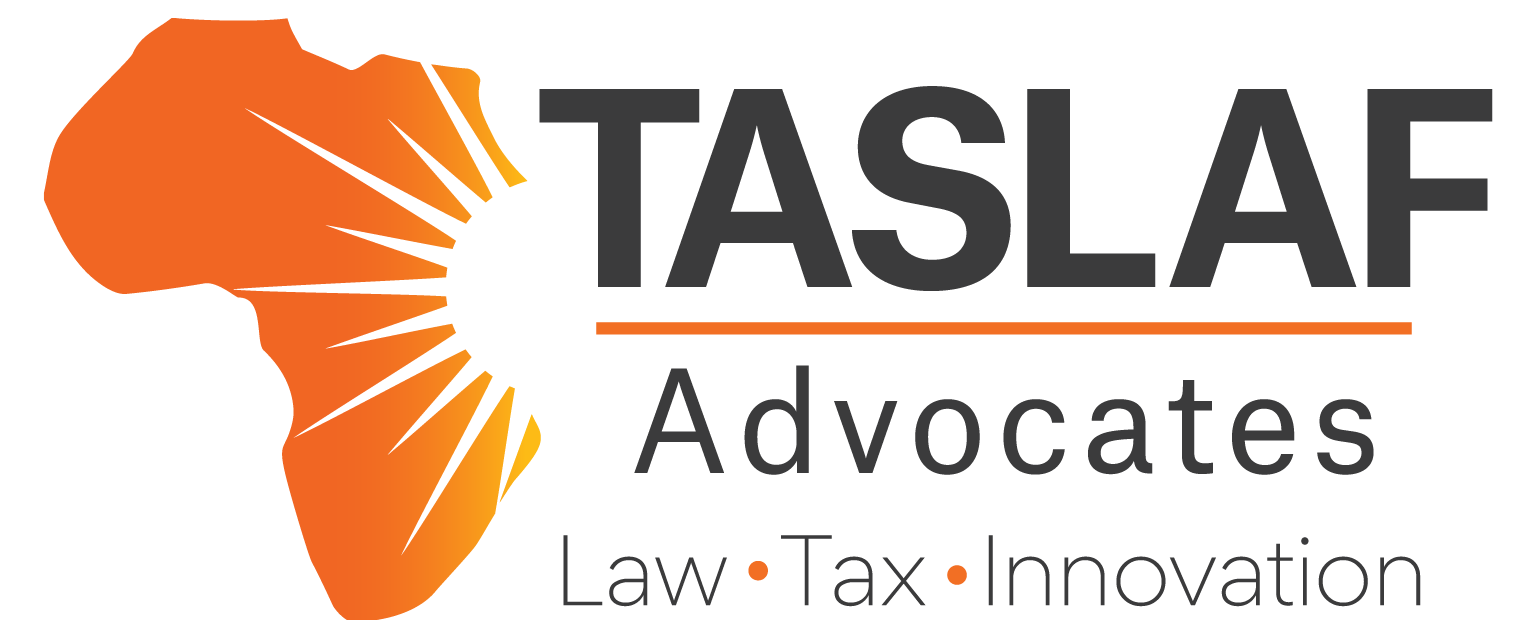A. BACKGROUND
Yunus Social Business Foundation Uganda Limited (YUNUS) is a company limited by guarantee that provides concessional and soft loans, strategic and other support to social businesses in Uganda with the aim of alleviating poverty and related social and environmental problems. YUNUS is part of the Yunus Social Business Germany which is registered as a charity in Germany and is exempt for income tax purposes in that country. As part of its activities in Uganda, YUNUS lends money to businesses proven to have a social impact, the money is repayable with interest and in most cases, YUNUS requires borrowers to provide security.
On 7th February 2019, YUNUS applied to the Commissioner, Uganda Revenue Authority for an income tax exemption certificate on the basis that YUNUS is a not-for-profit charitable organisation engaged in charitable activities in Uganda. The application was rejected.
Aggrieved by URA’s decision to rejecting its application, YUNUS applied to the Tax Appeals Tribunal (TAT) challenging the decision. The question before TAT was whether YUNUS is a charitable institution and qualifies to be exempted from income tax.
B. ARGUMENTS FOR YUNUS
YUNUS contended that it is a charitable institution and therefore an exempt organisation entitled to exemption from income tax under section 2(bb) (i) (B) of the Income Tax Act Cap 340 as amended.
The basis of the argument was that YUNUS is a company limited by guarantee with the main objective of addressing social and environmental problems in Uganda by providing financial and technical support and that to achieve its objectives, it receives funding from donors, which money it lends to businesses in Uganda that are proven to have a social impact particularly with regard to alleviating poverty.
YUNUS also relied on Practice Note No. 03 of 2006 issued by URA which provides that in order to be considered charitable, an organisation must be proved to provide services for public benefit including the relief of poverty.
YUNUS argued that its loan scheme is primarily aimed at alleviating poverty which renders the organisation a charitable institution.
It was also argued for YUNUS that its memorandum and articles of association forbid it from distributing dividends, profits and or assets and requires assets and proceeds to be reinvested in activities designed to achieve its objectives which further proved the charitable character of the organisation.
C. ARGUMENTS FOR URA
URA argued that YUNUS is a licenced money lender duly registered with and licenced by the Uganda Microfinance Regulatory Authority as a non-deposit taking institution and therefore engaged in the business of providing financial services through lending money repayable with interest.
URA further based on the fact that YUNUS has a trading licence from KCCA where its business is indicated as money lending and savings institution together with an investment licence from Uganda Investment Authority to argue that YUNUS is not a charitable institution.
Lastly, URA argued that charitable organisations in Uganda are regulated under the NGO Act, 2016 and that YUNUS admitted that it is not registered as an NGO in Uganda which further proved that YUNUS is not a charitable organisation for purposes of exemption from income tax.
D. TAT REASONING AND RULING
In resolving the dispute, TAT relied on Black’s Law Dictionary 10th Edition which defines charitable as dedicated to a general public purpose, for the benefit of needy people who cannot pay for the benefits received and a charitable organisation as organised and operated exclusively for religious, scientific, literary, educational, athletic, public safety or community service purposes, does not distribute earnings for the benefit of private individuals and does not participate in any way in political candidate campaigns or engage in substantial lobby.
TAT reasoned that from the above definitions, charity and charitable activities refer to an organisation that is operated exclusively for charitable purposes and not an organisation operated for both business and charitable purposes. TAT also ruled that the fact that the memorandum and articles of association do not permit distribution of earnings to private persons does not on its own make an organisation a charitable organisation.
On that basis, relying on the evidence that YUNUS is involved in money lending business for profit as a registered and licenced money lender, TAT ruled that YUNUS is not a charitable institution and does not qualify for exemption from income tax under the Income Tax Act Cap 340 as amended.
E. IMPLICATIONS FOR SOCIAL ENTERPRISES AND OTHER IMPACT FUNDS
- Social enterprises-organisations that pursue a double mission; to grow revenue and to have a social impact through emphasising social outcomes rather than income generation do not qualify as charitable organisationsfor purposes of exemption from income tax in Uganda.
- Such organisations cannot rely on the social impact aspect of their operations to classify their activities as charitable.
- To qualify for exemption from income tax on the basis of being a charitable institution, the organisation must demonstrate that beneficiaries of its activities are not required to pay for the service or anything rendered by it and that such activities do not involve making profit.
F. IMPLICATIONS FOR SOCIAL ENTERPRISE TAXATION AND POLICY
- The decision of the TAT shows the challenge that social enterprises have placed on tax policy. It would appear, from the perspective of tax policy, that it still understands charitable institutions in the “traditional” framework of aid receiving and aid conferring organisations.
- In our considered view, the phrase “charitable organisations” has a much broader meaning. Practice note No.3, issued by the commissioner general on 24th July 2006 provides that in order for an organisation to be considered charitable, it must fall under any of the following categories;
- The relief of poverty
- The advancement of education
- The advancement of religion or
- Other purposes beneficial to the community within the legal understanding of charity
- The definition above does not restrict the manner in which an organisation can set out to achieve either of the above objectives, and accordingly both grant receiving organisations and organisations who participate in business to finance the realisation of certain social objectives would fall within the definition above.
- TAT found that YUNUS was involved in business and therefore did not pursue charitable objectives exclusively. It further held that a charitable organisation must be one which pursues charitable objectives exclusively. In our humble view, social enterprises participate in business to achieve their social objectives. They exist as an alternative to conventional charitable organisations which rely on donations to finance their operations. In fact, Section 46 of the Non-Governmental Organisations Act authorises NGOs (which are charitable organisations) to participate in business to finance their operations. Besides, the exclusivity requirement is not reflected anywhere in the Income Tax Act or the Practice Note above.
- Still, URA made the argument that the fact that YUNUS possessed trading and money lending licenses implied that it is not a charitable organisations. The provisions of the Trade (Licensing) Act and Tier 4 Microfinance And Moneylenders Act under which those licenses are required to be obtained are mandatory and do not distinguish between charitable and non-charitable organisations. As such, YUNUS’ holding of such licenses is only a compliance measure and should not be interpreted to impact their status either as or not as a charitable organisation.
- The TAT took notice of the challenge that the emergence of social enterprises present to tax policy. The court took the “safe” approach by interpreting Section 2(bb) restrictively but calling upon stakeholders to specifically legislate for social enterprises. This is probably because extension of tax exemptions for a new class of beneficiaries results in a corresponding shrinkage of the tax base which tax systems are usually eager to avoid.
G. CONCLUSION
The Tax Appeals Tribunal has established that although profit generation may not be the impetus of a social enterprise organisation, the fact that an organisation is able to generate profits from its activities places such organisation outside the category of charitable organisations.
For this reason, an organisation whose activities generate profits, cannot rely on the social impact aspects of its activities to seek exemption from income tax as a charitable institution under sections 21(1) (f) and 2(bb) (i) (B)of the Income Tax Act Cap 340 as amended.
The decision should trigger a conversation between stakeholders on how to extend the incentive package to social enterprises since, they too work to achieve charitable objectives, and their capacity to support more beneficiaries and communities would be greatly improved by extension of tax incentives to them.





